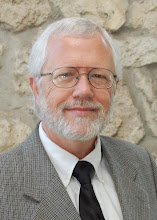Those questions plague Victor, a usually calm businessman at the center of One Day You'll Understand. In Paris in 1987, he listens with growing tension to media reports of the trial of Klaus Barbie, an accused Gestapo police chief in Nazi-era France.
Why is he anxious? Because his mother, Rivka, is a Jew, and his father may have been a collabo
 rator with the Vichy government, a French version of the Third Reich. (Pictured: Hyppolyte Girardot as Victor and Jeanne Moreau as Rivka. Photo Courtesy of Kino International. )
rator with the Vichy government, a French version of the Third Reich. (Pictured: Hyppolyte Girardot as Victor and Jeanne Moreau as Rivka. Photo Courtesy of Kino International. )How else to explain the father's SS dagger? Why else did he sign a document certifying Victor's sister as an "Aryan"? Why Rivka's silence about her parents, who died at Auschwitz? Was the father another Klaus Barbie?
Victor learns of a small village hotel where his grandparents hid out, and he drives there for answers. There he finds the room where they lived -- and he has a mysterious vision of that night when the Nazis finally found them.
The film is very un-American; it's low-key and talky -- in French, yet, with English subtitles. The film is short on the sex and blood and exploding helicopters that U.S. directors seem to consider vital ingredients. Yet One Day You'll Understand has its own neck-snapping suspense. The more Rivka deflects, the more you want to scream: "DAMMIT, JUST TELL HIM! GET IT OUT IN THE OPEN!"
But of course, she can't. Not after locking up secrets for four decades. And the film title comes true. When Victor finally grasps what she went through -- and what knowledge she protected him from -- he does understand.
The film troubles the conscience on several levels. One is the conflict of needs in a family: the need for truth versus the simple need to go on living, whatever the past may hold. Another is personal responsibility: How would we face a massive, genocidal force like Nazism? Would we flee? Join some guerrilla group? Lie to save our families? Or, as many did, collaborate?
Why do people act as they do? Or speak as they do? Or, sometimes, keep silent? We can only hope one day to understand.

No comments:
Post a Comment